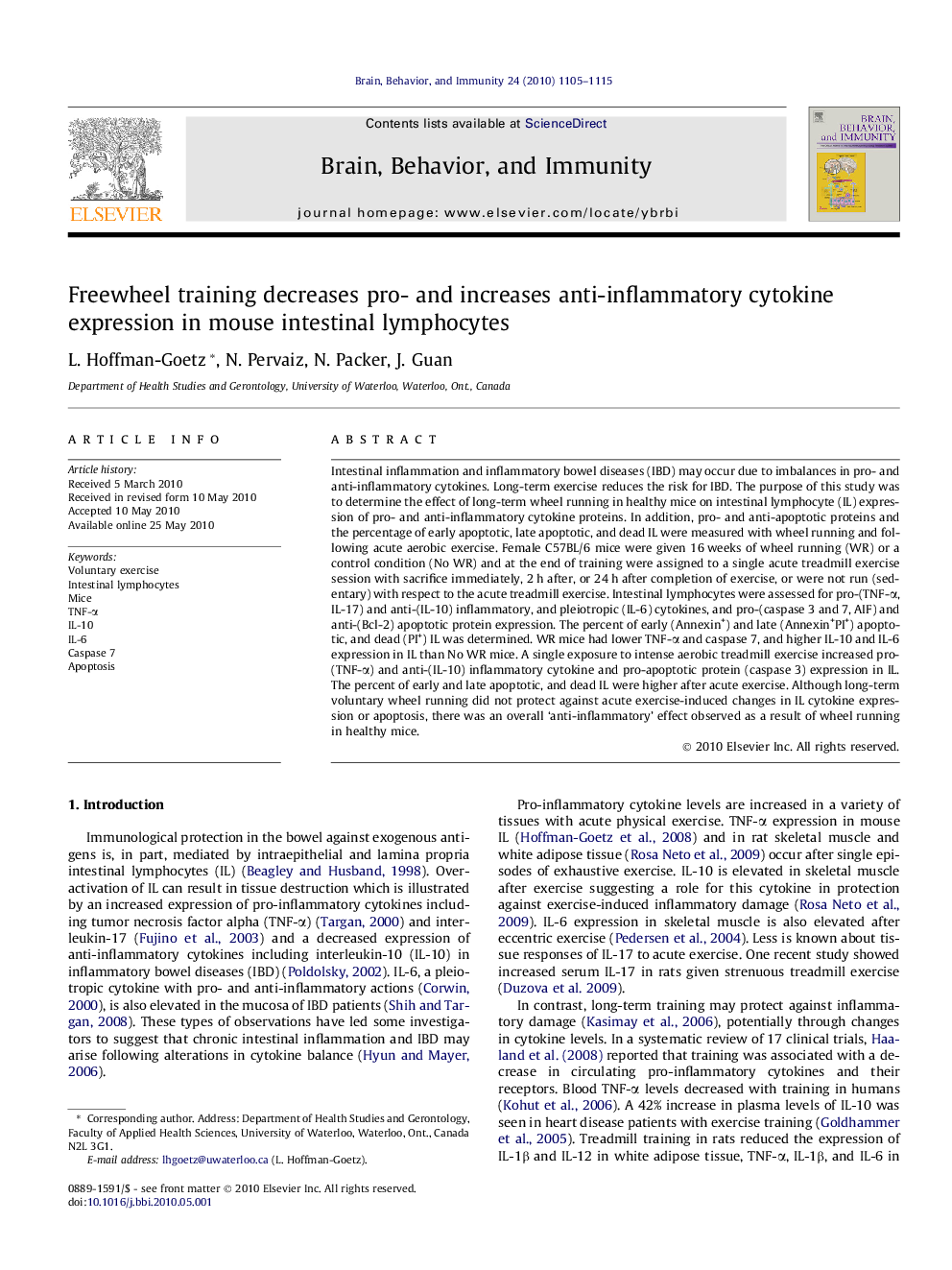| Article ID | Journal | Published Year | Pages | File Type |
|---|---|---|---|---|
| 922569 | Brain, Behavior, and Immunity | 2010 | 11 Pages |
Intestinal inflammation and inflammatory bowel diseases (IBD) may occur due to imbalances in pro- and anti-inflammatory cytokines. Long-term exercise reduces the risk for IBD. The purpose of this study was to determine the effect of long-term wheel running in healthy mice on intestinal lymphocyte (IL) expression of pro- and anti-inflammatory cytokine proteins. In addition, pro- and anti-apoptotic proteins and the percentage of early apoptotic, late apoptotic, and dead IL were measured with wheel running and following acute aerobic exercise. Female C57BL/6 mice were given 16 weeks of wheel running (WR) or a control condition (No WR) and at the end of training were assigned to a single acute treadmill exercise session with sacrifice immediately, 2 h after, or 24 h after completion of exercise, or were not run (sedentary) with respect to the acute treadmill exercise. Intestinal lymphocytes were assessed for pro-(TNF-α, IL-17) and anti-(IL-10) inflammatory, and pleiotropic (IL-6) cytokines, and pro-(caspase 3 and 7, AIF) and anti-(Bcl-2) apoptotic protein expression. The percent of early (Annexin+) and late (Annexin+PI+) apoptotic, and dead (PI+) IL was determined. WR mice had lower TNF-α and caspase 7, and higher IL-10 and IL-6 expression in IL than No WR mice. A single exposure to intense aerobic treadmill exercise increased pro-(TNF-α) and anti-(IL-10) inflammatory cytokine and pro-apoptotic protein (caspase 3) expression in IL. The percent of early and late apoptotic, and dead IL were higher after acute exercise. Although long-term voluntary wheel running did not protect against acute exercise-induced changes in IL cytokine expression or apoptosis, there was an overall ‘anti-inflammatory’ effect observed as a result of wheel running in healthy mice.
